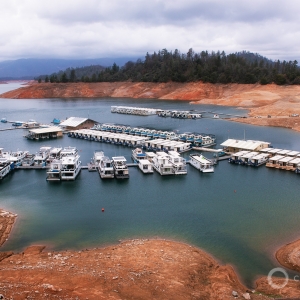The Stream, May 12, 2021: Lower Water Levels On Great Lakes Could Mean Less Erosion
YOUR GLOBAL RUNDOWN
- A dry winter could mean lower water levels on the Great Lakes this summer, lessening the impact of erosion.
- Increased pesticide use on California farms could endanger nearby waterways.
- Poor water management, population growth, urbanization and climate change are straining water supplies in Turkey.
- California extends its emergency drought declaration.
Climate change is affecting Kenyan tea production.
“The whole world will be watching, especially Kenyan tea farmers and other people on the front lines of the climate crisis.” – Mohamed Adow, director of Power Shift Africa, a Nairobi-based climate and energy think-tank. A recent report found that shifting temperatures and rainfall patterns due to climate change could devastate tea production in Kenya, the world’s largest supplier of black tea. Reuters reports that Kenya will probably see optimal and medium tea-growing conditions decline by about 25 and 40 percent, respectively, by 2050. In a recent U.N. survey of tea farmers in all seven of Kenya’s tea regions, 40 percent of respondents said they noticed changes in rainy and dry seasons, and 35 percent noted drought conditions.
IN RECENT WATER NEWS
In Case You Missed It:
On Eve of Line 5 Shutdown Deadline, Enbridge Vows to Defy Michigan Order – Enbridge Energy technically has one more day to shut down the Line 5 pipeline in the Straits of Mackinac, but even the pipeline’s most vocal opponents acknowledge slim odds that the oil actually stops flowing right away. This piece was originally published by Bridge Michigan and Michigan Radio as part of the Great Lakes News Collaborative.
HotSpots H2O: Water and Land Disputes Turn Violent Along Ambiguous Kyrgyz-Tajik Border – Distrust between Kyrgyz and Tajik ethnic groups is exacerbated by extreme water security.
Navajo-Gallup Water Delay Spurs Problem Solving in Arid Southwest – Earlier this year, five of Gallup, New Mexico’s water wells stopped producing water. The shortage isn’t wholly surprising. This piece is part of the Institute for Nonprofit News’ Tapped Out collaboration, which explores power, justice & water in the West.
Climate Change Could Increase Pesticide Use On California Farms, Endangering Waterways
Inside Climate News reports that an increased use of pesticides on California farms could turn into toxic runoff as severe storms become more frequent. Warming temperatures influence insect growth, which means more farms will begin to rely on insecticides to manage the problem. Chemicals from insecticides could end up in nearby waterways, further endangering native fish and other aquatic species.
TODAY’S TOP WATER STORIES, TOLD IN NUMBERS
18 YEARS
To combat an ongoing water crisis, Turkey has built more than a thousand new dams over the last 18 years, which experts say have had a large impact on “ecosystems and societies,” Reuters reports. This poor water management, along with population growth, urbanization and climate change, are straining Turkey’s water supplies.
41 COUNTIES
California has extended its emergency drought declaration to include 41 of 58 counties, the Associated Press reports. The announcement comes as the state continues to experience severe drought, just a few years after emerging from the last grueling dry spell.
ON THE RADAR
The U.S. Army Corps of Engineers announced on Monday that less ice cover this past winter could mean lower water levels on the Great Lakes this year, WLNS reports. In the past, high lake levels and more frequent and severe storms on the lakes have caused intense erosion and millions of dollars in property damage. Although lower lake levels could mean less erosion, USACE Water Management Division Chief John Allis said it would be premature to think erosion and high water levels won’t be an issue in the future.
- Why it matters: In many communities on Michigan’s coasts, a longstanding laissez faire approach to coastal land use policy has allowed residents to build homes precariously close to the shoreline, with devastating consequences when Great Lakes water levels inevitably rise. But the ongoing high water crisis is leading some communities to rethink the policies that put them here.
Jane is a Communications Associate for Circle of Blue. She writes The Stream and has covered domestic and international water issues for Circle of Blue. She is a recent graduate of Grand Valley State University, where she studied Multimedia Journalism and Women, Gender and Sexuality Studies. During her time at Grand Valley, she was the host of the Community Service Learning Center podcast Be the Change. Currently based in Grand Rapids, Michigan, Jane enjoys listening to music, reading and spending time outdoors.






Leave a Reply
Want to join the discussion?Feel free to contribute!